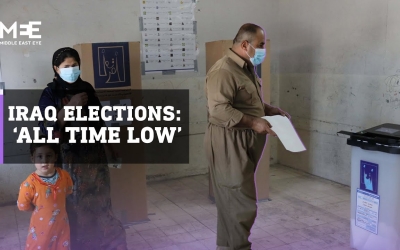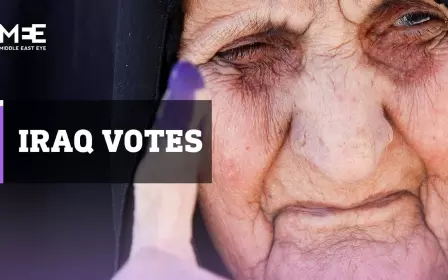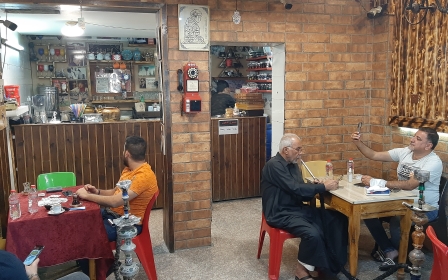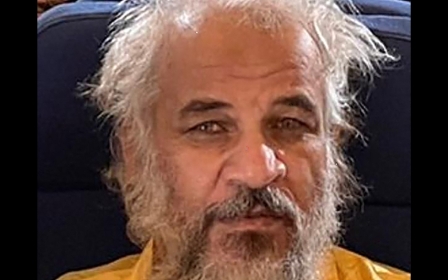Iraq elections 2021: Shia parties reject results as armed group threatens violence
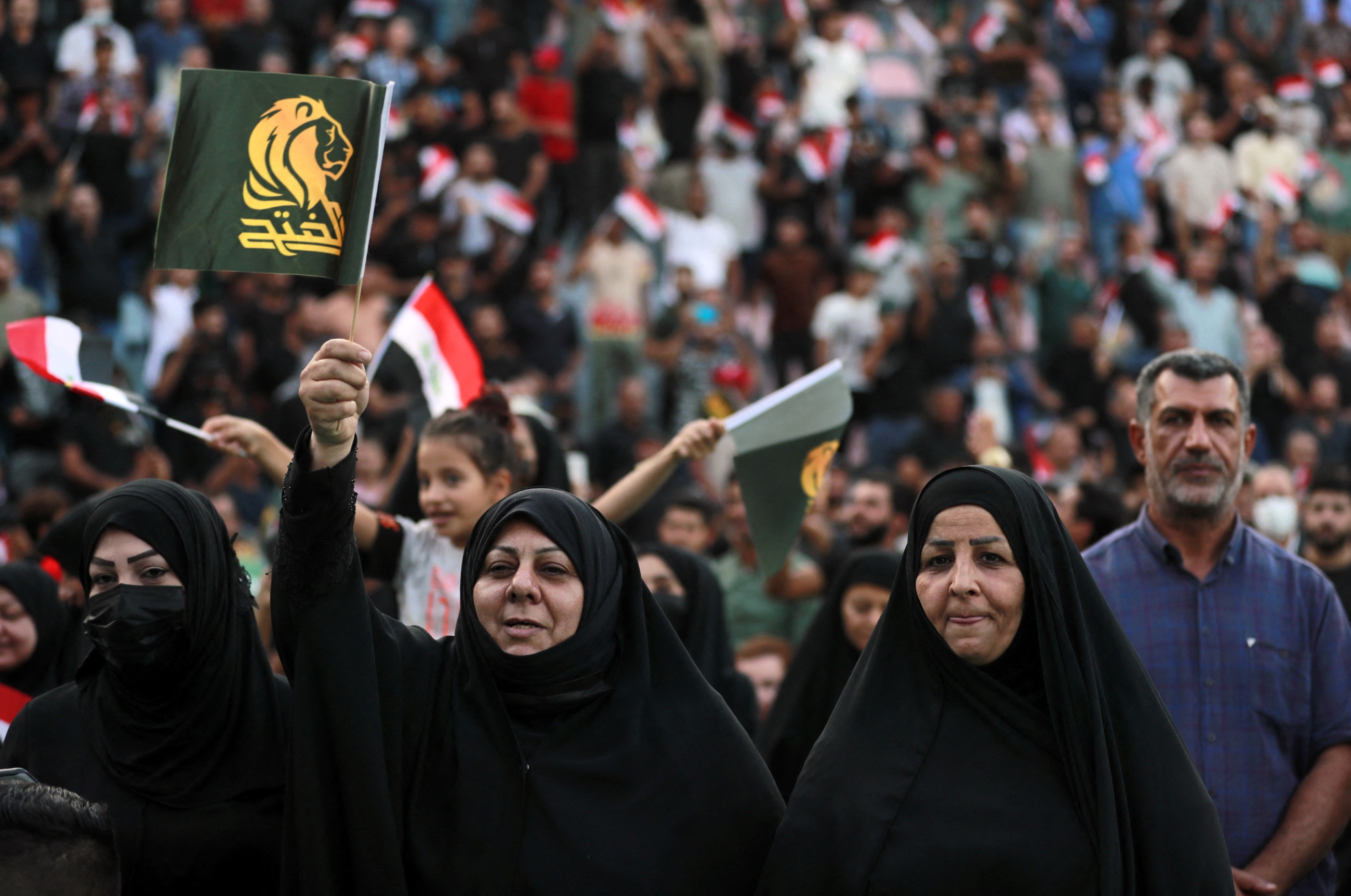
Leading Shia parties in Iraq have announced their collective rejection of the results in Sunday's parliamentary elections, after the initial evidence appeared to suggest a collapse in their vote share.
The Fatah alliance, which is composed of supporters of the country's al-Hashd al-Shaabi paramilitary movement, in particular denounced the results as "fabricated" while one armed militia faction appeared to threaten violent action in response.
According to initial results released by the Iraqi High Electoral Commission (IHEC), the Sairoun movement led by cleric Muqtada al-Sadr came out ahead with 73 of the parliament's 329 seats, in what had been an election with a record low turnout of 41 percent.
In a statement on Tuesday, Hadi al-Ameri, leader of Fatah, called for a joint response against the election results from other Shia political factions.
"We do not accept these fabricated results, whatever the cost, and we will defend the votes of our candidates and voters with full force," said his office.
New MEE newsletter: Jerusalem Dispatch
Sign up to get the latest insights and analysis on Israel-Palestine, alongside Turkey Unpacked and other MEE newsletters
Fatah saw its share of the seats in parliament, where it had previously been the second-largest party, decline sharply from 48 to 14 seats.
Seperately, a spokesperson for Kataib Hezbollah - an armed Iran-backed group labelled a terrorist organisation by the US - called for their supporters to oppose the results and warned they would "stand firmly and insist to restore things to their rightful place".
Kataib Hezbollah'z Huquq party has won one seat.
"The brothers in the Iraqi resistance should prepare for a sensitive stage that requires wisdom and close observation from us," said spokesperson Abu Ali Al-Askar, using a term that refers to groups opposed to US and Israeli influence in the region.
"Be sure that no right will be lost behind it, so do not tire, do not get bored, and do not compromise, and victory will be your ally with the help of Almighty God."
Coordinated response
A number of other Shia political parties also faced a steep decline in their vote share, leading to complaints of irregularities.
Late on Monday evening, a meeting was held at the home of former prime minister and leader of the State of Law bloc Nouri al-Maliki, which was attended by most of the leaders of the Shia political forces and the leaders of the Iran-backed armed factions, where they discussed how to respond to what they deemed a "coup" by Sadr, backed by a "British-American plot".
One attendee of the meeting told Middle East Eye that they intended to "escalate" the situation so that Sadr and Prime Minister Mustafa al-Kadhimi understood that "what happened will not pass without consequences".
"Some leaders suggested that we proceed with the legal procedures and focus on the options available to form a bloc larger than Muqtada's bloc, and some of them insisted that the security escalation is the best option at this stage," said the attendee.
"Kataib Hezbollah insist on resorting to military options, but others have reservations about this option and the majority of them do not support it."
'Very angry'
On Tuesday, Kadhimi visited the headquarters of the Joint Operations Command in Baghdad "to follow up on the security measures taken to protect the Electoral Commission's warehouses and ballot boxes", a statement issued by his office said.
The Electoral Commission revealed that there were more than 3,000 electoral boxes that had not reached the main office of the commission in Baghdad, which means that there are about 60,000 votes that have not yet been counted and their results have not been announced.
'Fatah leaders are very angry...what happened, was a scandal. The loss is very big and painful'
- Fatah leader
Kadhimi brought forward the vote from 2022 to appease the Tishreen anti-government protest movement that kicked off in October 2019.
The movement, which has seen a number of affiliated political candidates elected to parliament, has been angry about corruption, unemployment, foreign interference and the unaccountable power of paramilitary groups.
Armed groups affiliated to Fatah have been accused of involvement in the kidnapping and assassination of a number of activists since 2019.
One Fatah leader told MEE that they had expected to lose seats in the elections, but the scale was much worse than anticipated.
"The Fatah leaders are very angry. They were expecting a decrease in the number of their seats, but what happened was a scandal. The loss is very big and painful," he said on condition of anonymity.
"We have submitted appeals to the Electoral Commission, but we do not expect much. From our experience in the previous elections, even if there was fraud, the results cannot be changed fundamentally."
Middle East Eye delivers independent and unrivalled coverage and analysis of the Middle East, North Africa and beyond. To learn more about republishing this content and the associated fees, please fill out this form. More about MEE can be found here.


